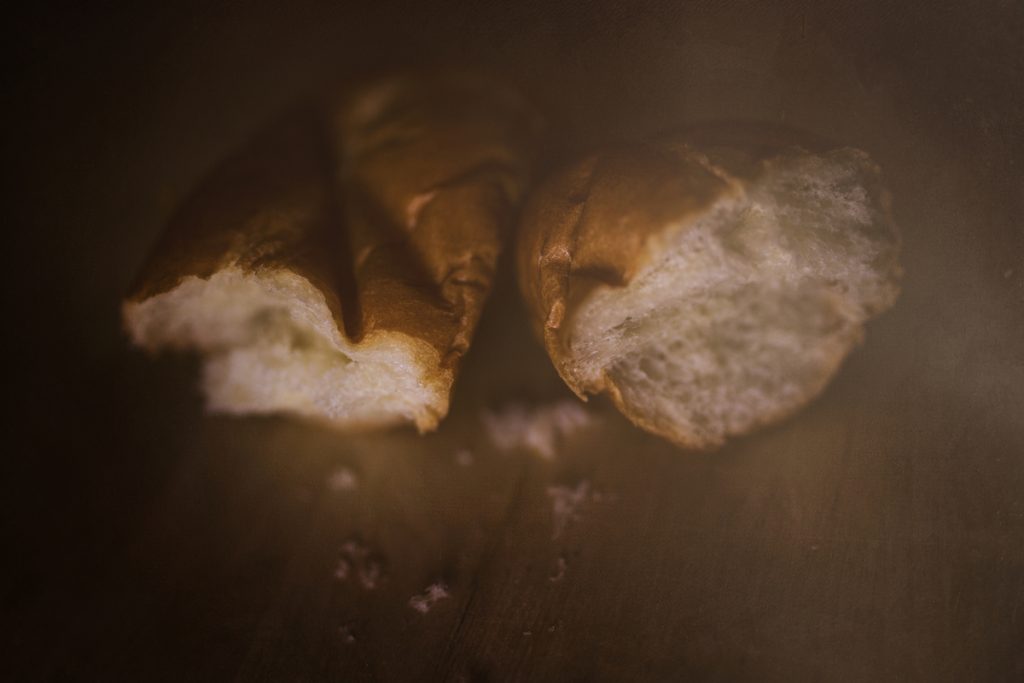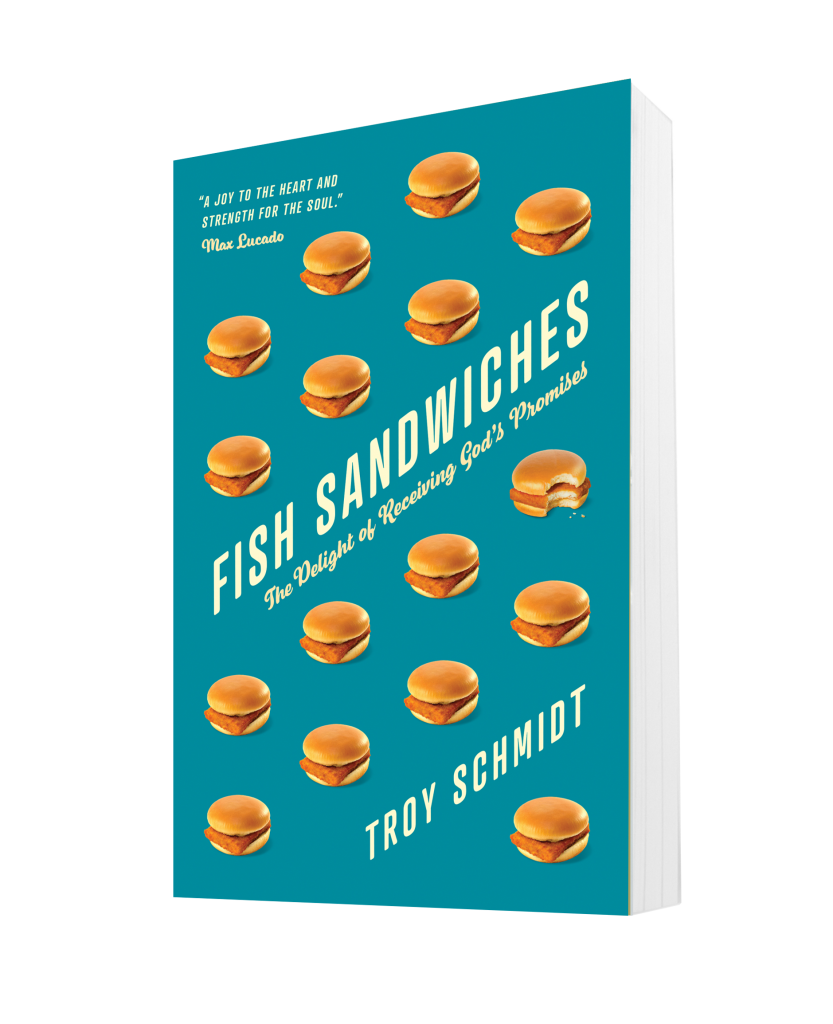When God blesses us to overflowing, we need to pick up our blessing and do something with it—hand it out, spread it around, give it to others—because when it comes to leftovers, God has a clear and definite return policy.
Jesus told all sorts of parables about workers who were given something and then squandered what they got.
In one story,[i] a landowner gave three servants $60,000[ii] each and told them to do something with it. One of them took that investment and turned it into $600,000. The other’s investment became $300,000.[iii] The last one did nothing. The landowner got pretty mad at the last guy. Why?
Remember, for starters, these poor servants were given $60,000! That was the multiplication blessing! But the blessing did not stop there. The landowner was not saying, “Bless you, my workers. Sit around and get fat!” He said, “I’m blessing you, now go out and create more blessing.”
God wants a return for his blessing.
It’s the difference between a sponge and a cup. I’m not a sponge, soaking up blessing. I’m a cup, taking it in and pouring it out.
Blessings are not gifts to be consumed but resources to put to good use.
Blessings do not stop with us. They continue on through us.
When God multiplies in your life, distribute, hand out, spill over, return it to those around you. If you receive a blessing, donate a little extra to your favorite charity, give some time at a local homeless shelter, or use your talents at church.
[Jesus said,] “Give, and it will be given to you. A good measure, pressed down, shaken together and running over, will be poured into your lap. For with the measure you use, it will be measured to you.” – Luke 6:38
Remember the baskets that held the leftovers? Do the number of leftover baskets have any significance? Jesus spoke to the disciples and talked about those leftovers after the miracles. He said:
When I broke the five loaves for the five thousand, how many basketfuls of pieces did you pick up?”
“Twelve,” they replied.
“And when I broke the seven loaves for the four thousand, how many basketfuls of pieces did you pick up?”
They answered, “Seven.”
He said to them, “Do you still not understand?”
Mark 8:19-21
Jesus never explained the significance, but he wanted the disciples to understand. So what did the number of baskets mean?
Let’s go back to the target audience for each of the miraculous feedings.
Remember the Feeding of the Five Thousand was primarily for the Jews. The Jews came from twelve tribes (twelve baskets).
The Feeding of the Four Thousand was aimed at Gentiles (non-Jews) primarily. People in Jesus’ time believed that the Gentiles came from seven nations (seven baskets) that once occupied the Promised Land. Moses said to the Israelites before they entered the land that would become Israel:
When the Lord your God brings you into the land you are entering to possess and drives out before you many nations—the Hittites, Girgashites, Amorites, Canaanites, Perizzites, Hivites and Jebusites, seven nations larger and stronger than you . . . – Deuteronomy 7:1
Those seven nations were the opposition, the outsiders, those not like the Jews.
So what do the baskets mean?
Twelve baskets—bless those like you
Seven baskets—bless those not like you
Jesus seems to be saying, “I have so much sustenance in me, I cannot only feed you but I will give you leftovers to distribute to all the Jews and all the Gentiles in the world!”
From the leftovers, Jesus made a case for missions through the number of baskets. Take what you have and spread the blessing to other people less fortunate, whether they are your friends or your enemies, those across the street or around the world, those who speak your language or not.

I remember speaking at a home church in Santiago de Cuba, in a room decorated in outdated and dilapidated furniture. Their wall decorations included a hubcap and McDonalds Happy-Meal toys. Afterwards, I slipped into the kitchen of the host family. As we sat on a torn and rickety couch, they brought out a plate of cookies and Cuban coffee (my favorite). The other missionary and I could not believe it. Why were they offering us overweight Americans food when they barely had anything? We wanted them to keep it, store it away, give it to the kids. We had breakfast bars and dried fruit in our suitcases. Don’t feed us!
We would have offended them by taking away their opportunity to bless us from their overflow. They wanted us to have it because they appreciated us and loved us. They saw having any food as a blessing and immediately distributed what little they had. We blessed them by accepting their blessing to us.
That’s quite a return policy.
No cup of coffee has ever made me feel more warm inside. It multiplied in my heart.
No matter how poor you are, or think you are, you can give out of the overflow. That overflow will mean more to God than anything given out of wealth.
Giving above and beyond reveals the heart of the giver. God gives more because he loves us more. He loves us to total satisfaction and beyond. God has leftover love.
Insert pull quote 24 near here.
Remember, leftovers taste good the second time, but they spoil if they sit around too long. What are you going to do with your remainders?
You’ve been reading with Troy Schmidt from Fish Sandwiches: The Delight of Receiving God’s Promises. Dig deeper and read chapter one for free here.
 [i] The Parable of the Bags of Gold; see Matthew 25:14-30.
[i] The Parable of the Bags of Gold; see Matthew 25:14-30.
[ii] The Bible calls the sum of money a mina, which is three months’ wages. If the average person makes $24,000 a year, that’s $2,000 a month, $6,000 for three. Jesus said the man gave each 10 minas. That’s $60,000 dollars.
[iii] The passage in Luke 19 says the mina became 10 more for one servant and 5 more for the other servant. Whether that meant one mina ($6,000) or the entire amount of minas ($60,000) given is unclear. For our purposes we’ll say the entire amount was multiplied by 10 and 5.

